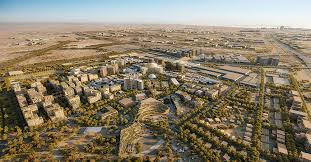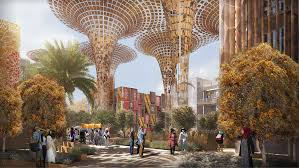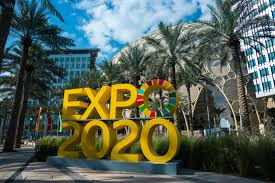
Dubai has always been a city of ambition, progress, and vision. From the world’s tallest skyscraper—the Burj Khalifa—to the stunning Palm Islands, Dubai continues to amaze the world. One of its latest and most important ambitions is building a Smart City that matches the long-term vision of Expo 2020. This grand event was not just a show; it laid the foundation for a new future.
But how exactly do Dubai’s Smart City projects align with the goals set during Expo 2020? Let’s explore this fascinating journey.

Expo 2020 was more than just a world fair. It was designed to introduce innovative ideas, promote global collaboration, and showcase new technologies. Its theme, “Connecting Minds, Creating the Future,” reflected Dubai’s broader goal of becoming one of the smartest, most sustainable cities in the world by 2030.
This global event welcomed more than 24 million visitors and featured pavilions from 192 countries. But the true legacy of Expo 2020 lies in how its ideas are now shaping the future of Dubai as a smart and connected city.

Dubai’s Smart City projects are being built around four key pillars, all closely connected to the vision of Expo 2020:
One of the most exciting developments after Expo 2020 is the creation of District 2020—a future-ready mini-city built on the actual site of the Expo. This district will host innovation hubs, smart offices, high-tech residential zones, and research centers.
Global companies like Siemens and DP World have already committed to setting up operations in District 2020. Start-ups and tech firms from all over the world are expected to join, making this area a center of innovation and digital transformation.
The entire district will use AI-based waste management, smart parking, and energy-efficient systems—proof that Expo 2020’s vision is becoming reality.
Dubai’s leadership has embraced AI not as an add-on but as the backbone of its Smart City dream. The city has launched the Dubai AI Roadmap, which aims to integrate AI into healthcare, education, public safety, and government services.
For example:
These innovations reflect the technological spirit displayed at Expo 2020’s Mobility and Opportunity pavilions.
One of Expo 2020’s strongest messages was the need for sustainable living. Dubai has made solar energy mandatory for all new buildings and aims to produce 75% of its energy from clean sources by 2050. The Mohammed bin Rashid Al Maktoum Solar Park, one of the world’s largest, is proof of this commitment.
Additionally, smart irrigation systems, vertical farming, and water recycling plants are making Dubai greener—a big shift for a desert city.
Dubai’s Smart City journey is also open to global entrepreneurs. The Dubai Future Foundation and innovation hubs like Area 2071 are giving start-ups the platform to create smart solutions for energy, transport, and healthcare. This supports the spirit of Expo 2020, where many start-ups showcased breakthrough ideas.
Dubai’s Smart City projects are not distant dreams—they are happening now. With smart transport, green energy, AI-driven services, and high-tech living spaces, Dubai is turning the Expo 2020 vision into everyday reality.
As District 2020 grows and smart technologies spread across the city, Dubai is setting a global example of what the city of the future looks like—a blend of innovation, sustainability, and comfort.
For residents, tourists, and investors, this means a smarter, greener, and more connected Dubai in the years ahead.
Read More:- Shobha Realty Launches Its Most Luxurious Project Yet—Full Details Inside 2025
